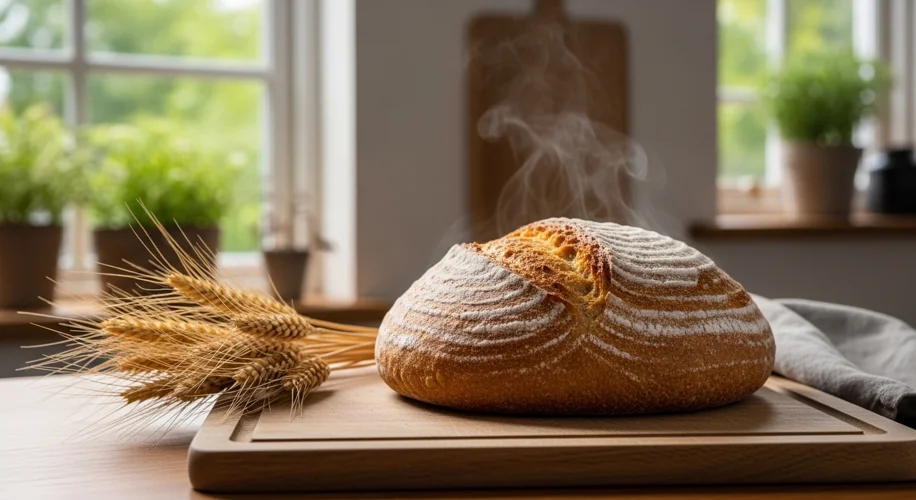You know that feeling when you pull a warm loaf of bread out of the oven? That incredible, earthy, comforting smell that just fills the whole house? For me, it’s right up there with the satisfaction of pulling a perfect carrot from the garden or picking a sun-warmed tomato. It’s the smell of sustenance, of home, of something truly fundamental.
And it got me thinking, as I was kneading a batch of sourdough last week (yes, even a vegetable guy like me gets into grains sometimes, though my wheat field remains a dream for now!): bread isn’t just food, is it? It’s a story. A really, really old story that whispers about human ingenuity, community, and even our societal values.
Think about it. Bread has been a cornerstone of human civilization for thousands of years. We’re talking ancient Egypt, where the discovery of yeast – probably by accident, from beer-making – turned flatbreads into puffy, glorious loaves. It wasn’t long before bakeries popped up, and bread became a status symbol. The lighter, whiter the bread, the more prestigious you were. Hard to imagine now, when whole wheat is often seen as the healthier, more “artisan” choice, isn’t it?
Fast forward to ancient Rome, where professional bakers served up everything from coarse soldier’s bread to fine, spiced loaves for the elite. And in medieval Europe, your daily bread pretty much defined your place in society. The poor ate dark, heavy rye or barley loaves, while the wealthy enjoyed lighter, finer wheaten bread. It was a visible marker of who you were and what you had.
But beyond class, bread has always been about connection. The phrase “breaking bread together” isn’t just a quaint saying. It’s a powerful act of sharing, hospitality, and building community. It’s there at family dinners, religious ceremonies, and simple gatherings. It bridges gaps, offers comfort, and signifies peace. It’s fascinating how something so simple can carry such profound meaning.
Then came the industrial revolution, and things changed. Suddenly, white bread became cheap and accessible to everyone. It was a sign of progress, of being “modern.” But in the quest for efficiency and shelf life, we lost something. The flavor, the texture, the connection to the source. It became less about the grain and more about the convenience.
That’s why I love seeing the resurgence of artisan bread, the rise of home bakers delving into sourdough starters, and the appreciation for heritage grains. It feels like a return to roots, a quiet rebellion against the fast-food culture. It’s a recognition that real food, made with care and intention, just tastes better and connects us more deeply to the earth and to each other. When I bake a loaf, I think about the sun, the soil, and the people who have been doing this for millennia. It’s a small act, but it feels significant.
So next time you slice into a fresh loaf, whether it’s homemade or from your favorite local bakery, take a moment. Savor that aroma. Think about the incredible journey that simple loaf has taken, from ancient grains to your table. It’s more than just a meal; it’s a taste of history, a symbol of community, and a testament to the enduring human spirit. And maybe, just maybe, it’ll inspire you to get your hands a little bit floury.

